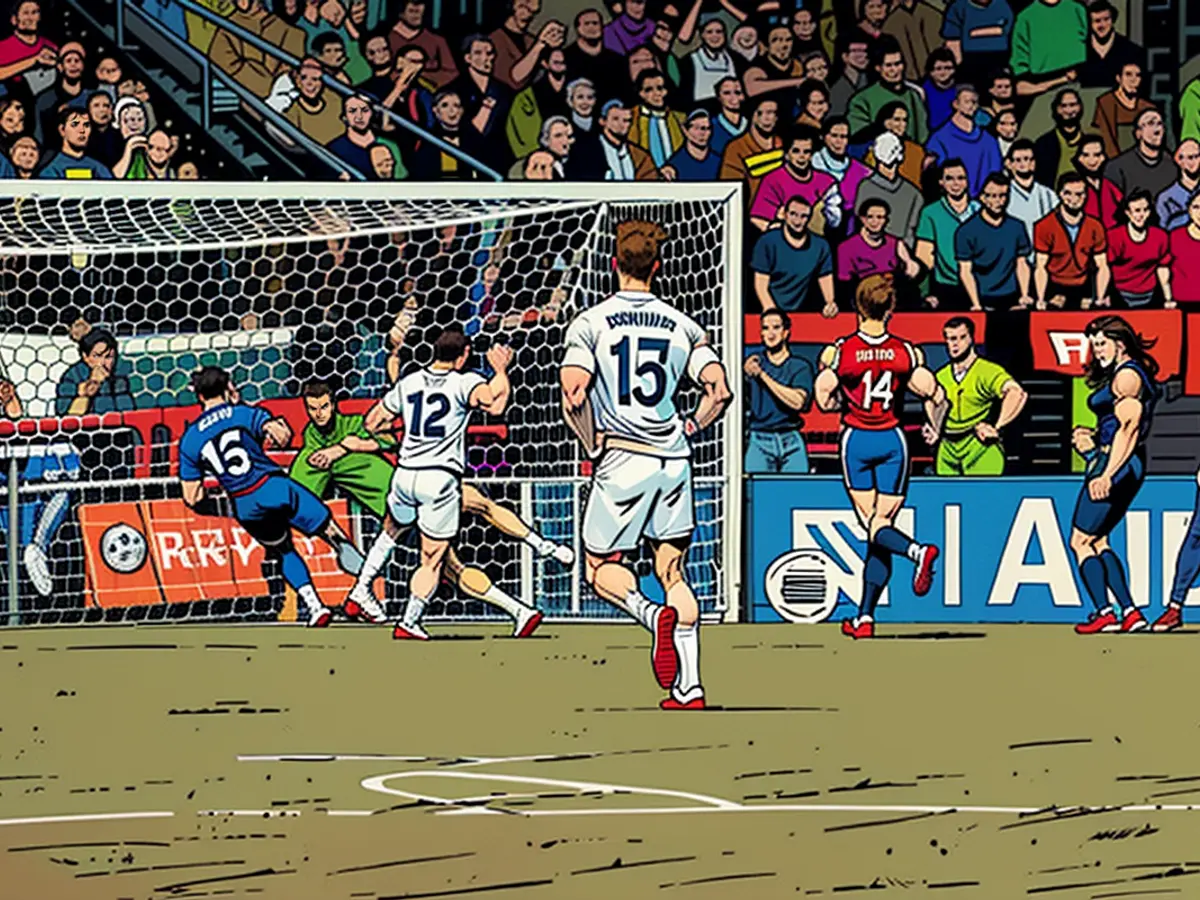Autocratic regimes use the European Football Championship as a stage
China and Qatar are prominent at the European Football Championship - however, the controversial UEFA partnerships are causing discussions. The UEFA states that it takes its social responsibility "in full", but it is "a confederation of football associations and not a political actor".
The Visa-Qatar sponsor board flashes before numerous games across TV screens, with advertising for controversial Chinese top sponsors at countless locations in the EM arenas. While some German fans are left in disbelief, the European Football Union (UEFA) sees it as a lucrative business. However, observers argue that this raises questions about the credibility and goals of this EM.
Autocratic regimes are certainly present at the German "Summer Fairy Tale 2.0". Five out of the 13 global sponsors come from China, along with one from Qatar, the heavily criticized host of the previous World Cup. These are also companies that have had to justify themselves for years due to possible links to forced labor, the suppression of Chinese Uighurs, or the lack of protection for minors. A problem?
The UEFA only closed a deal with the EU Commission in 2022 to "use European football as a force for positive change", as it was stated. The interest in "maximizing economic profitability" from the EM is more important for the UEFA "than the publicly stated political or social goals", says Economist Christoph Breuer from the German Sport University in Cologne.
"A form of Western whitewashing of the brand"
For example, the Alipay payment system and the AliExpress online platform. Both belong to Alibaba, a Chinese multibillion-dollar conglomerate that, according to a report by the US research group IPVM from 2020, has developed facial recognition software. In the spotlight: The Uighur minority, which human rights activists claim are being held in detention centers by the hundreds of thousands. Alibaba denied the allegations.
The Chinese EM partner AliExpress is also criticized for alleged sales of counterfeit medicines and food, as well as underage users reportedly gaining access to pornographic material. Furthermore, the Australian Strategic Policy Institute reported in 2020 that the auto manufacturer BYD and the tech company Vivo were part of a series of companies that were alleged to have profited directly or indirectly from Uighur forced labor.
The Chinese partners used their sponsoring to "carry out a form of Western whitewashing of the brand," analyzes Breuer. Despite all the controversies, Chinese partners hoped to be "even more strongly associated with Western and European values as a brand" through the EM. The goals of Qatar were "in principle similar".
No influence as local organizer
Despite the heavy criticism regarding human rights violations surrounding the World Cup 2022, Qatar is hardly to be forgotten in the world of sports. Above all, Nasser Al-Khelaifi, boss of Paris St. Germain and a man with numerous functions, wields significant influence in European football. On the day of the opening match, the UEFA presented the Qatari state airline Qatar Airways as a sponsor.
The UEFA announced that it takes its social responsibility "in full," but stressed that it is "a confederation of football associations and not a political actor." As previously highlighted in a joint statement with the German Football Association (DFB), UEFA also takes the issue of human rights "very seriously," it was stated.
However, the choice of sponsors remains a contentious issue. The UEFA's negotiating position is "so strong that, as local hosts, we have no influence on it," according to Breuer. In this case, the organizers, including tournament chief Philipp Lahm, who have set high sustainability goals, commented - and added critically: "Some of UEFA's partners are causing disbelief among us."
The European Football Union (UEFA) defended its partnership with Qatar Airways, despite the controversial human rights issues surrounding the World Cup 2022. This move was seen by some as an attempt to strengthen Qatar's association with Western and European values.
Alibaba, one of the Chinese partners criticized for human rights violations, used its sponsorship of the European Football Championship to conduct a form of "Western whitewashing of the brand". This strategy aimed to improve its image and association with Western values, despite the numerous allegations against it.








